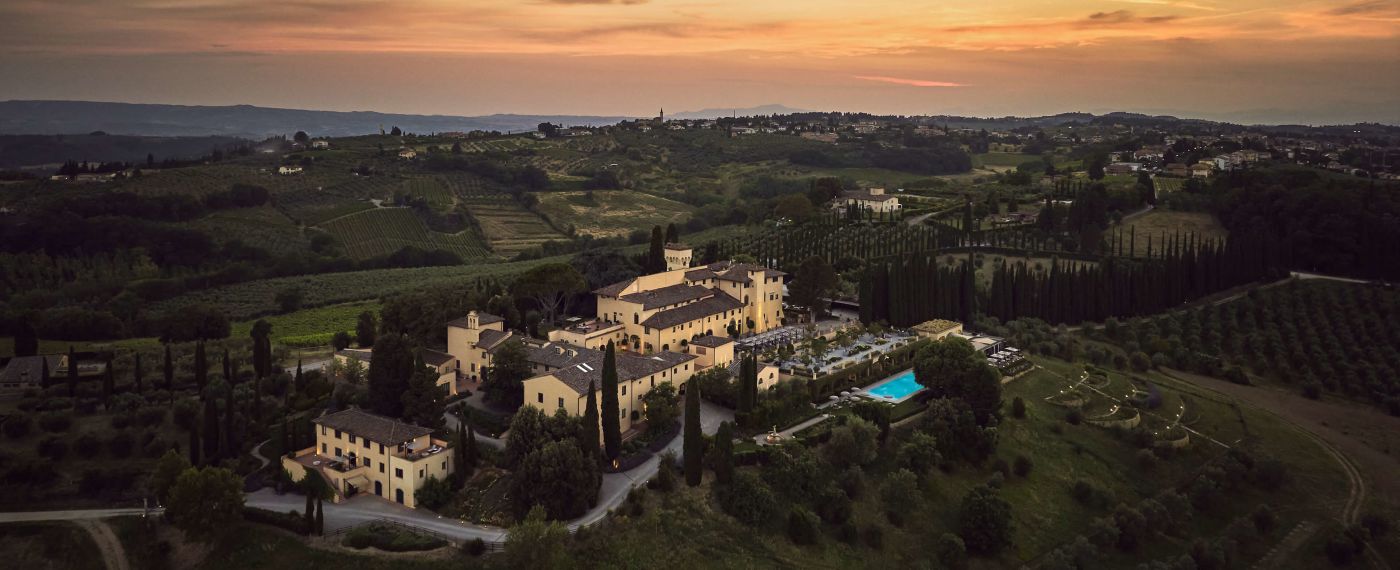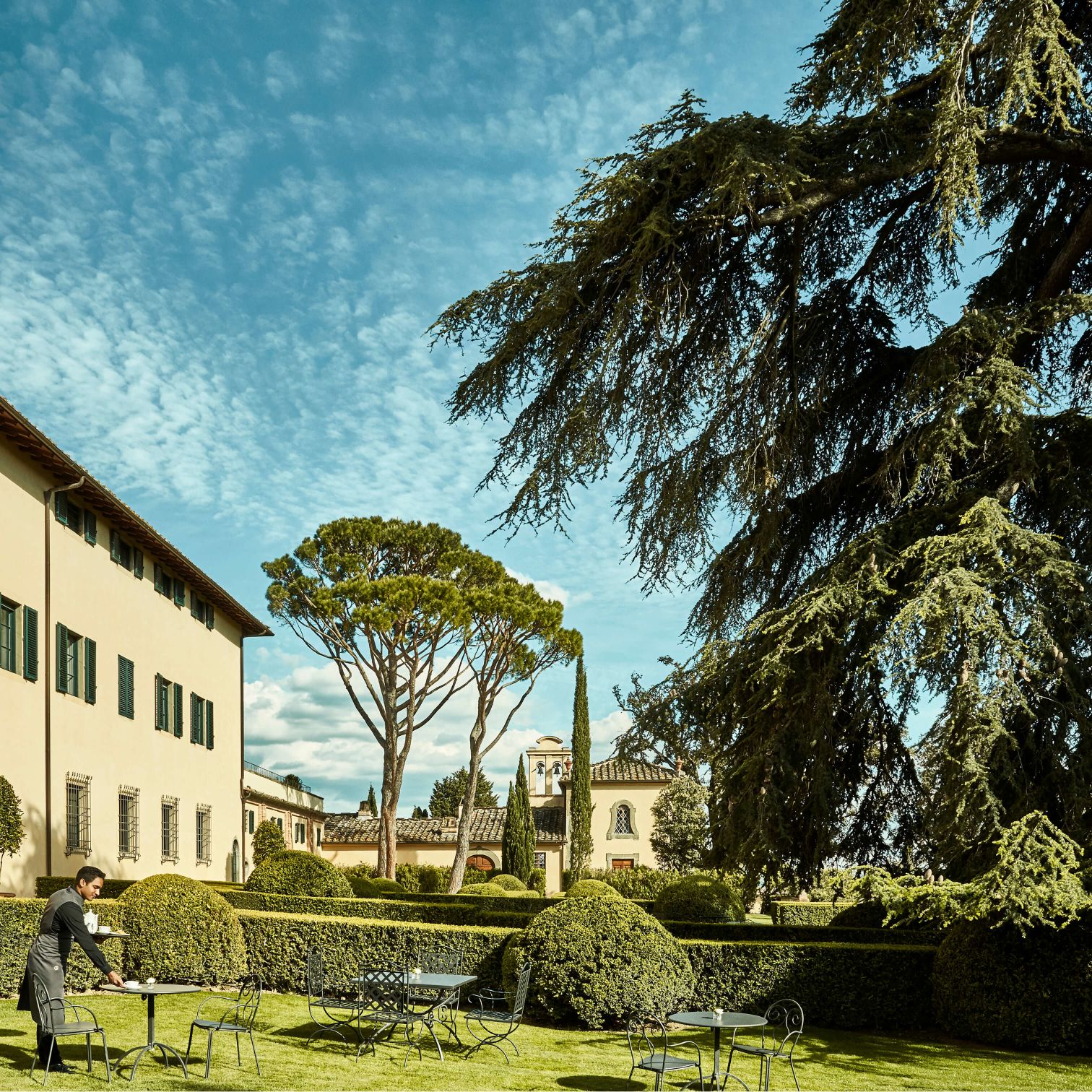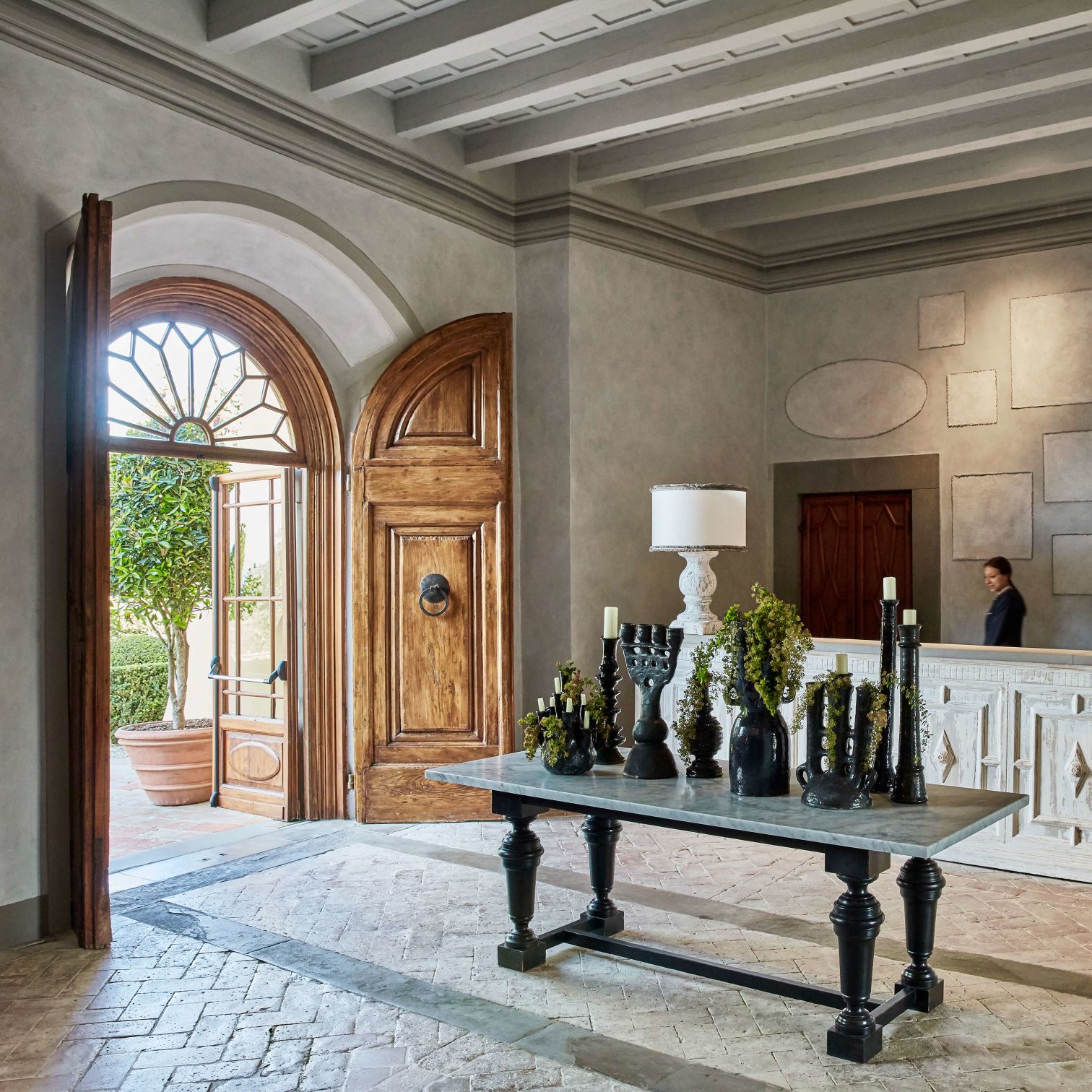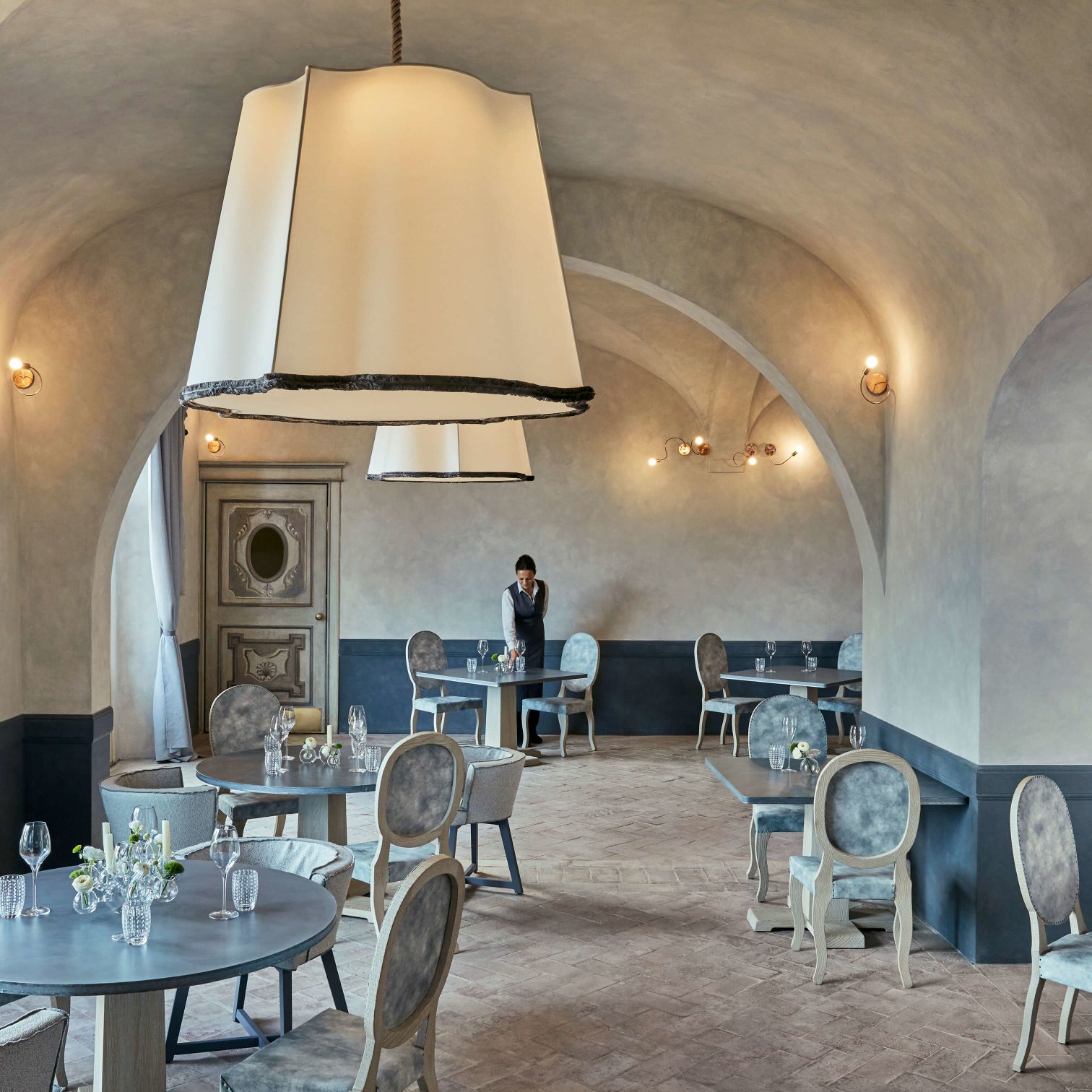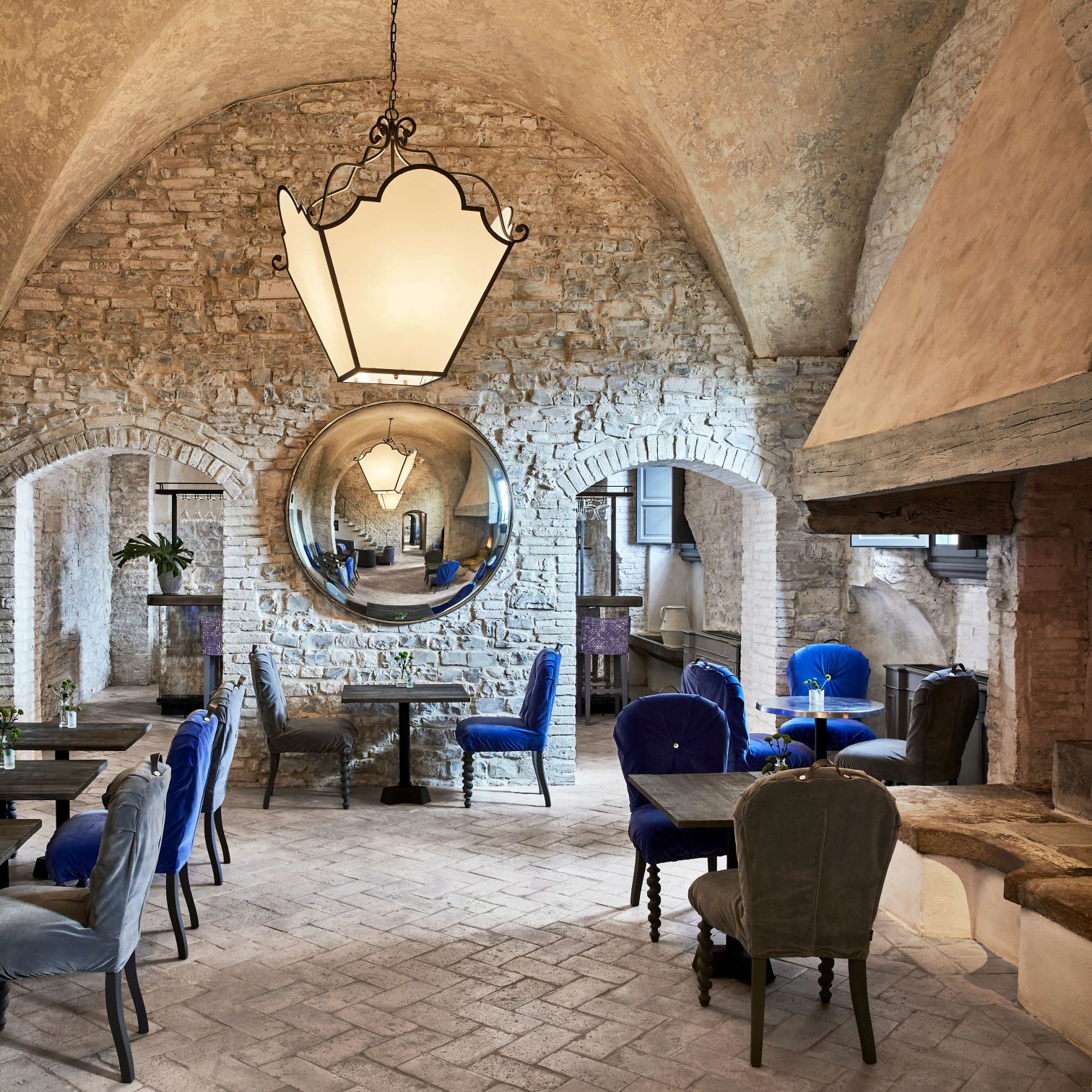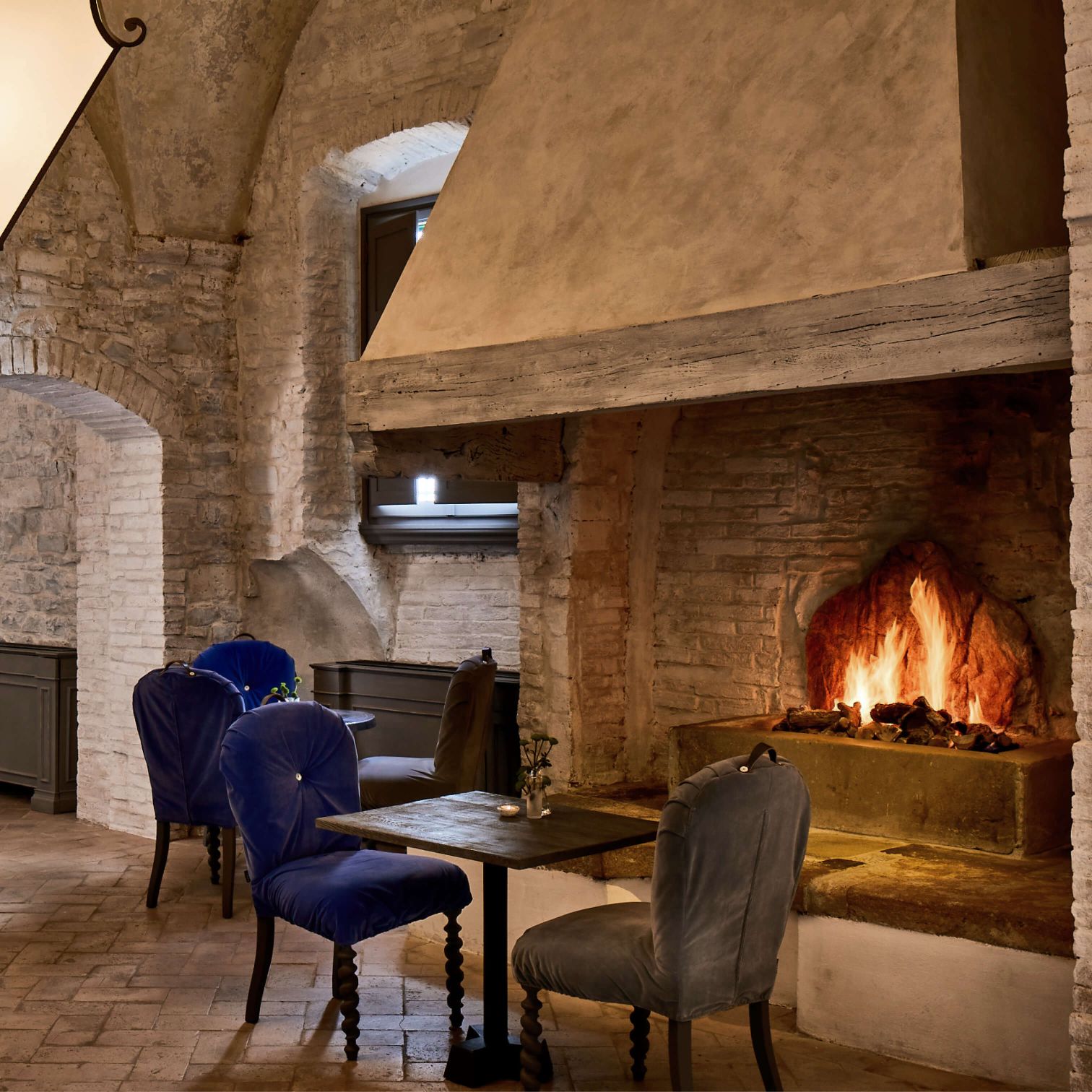
Renaissance-era frescoes, centuries-old wine cellars and insights into Florence’s noble families — join us on a voyage through nine centuries of history at our Tuscan escape.
From its first designs as a country residence for Tuscan nobility, to its present life as a luxury escape, COMO Castello Del Nero has been the beating heart of the local community.
On this self-guided walking tour, you will get to know your new surroundings, and come to know some of the fascinating characters who have called the Castello home.
As the latest stewards of this historic place, we take our responsibility seriously. All our conservation work has been conducted in close partnership with the Accademia di Belle Arti de Firenze, who review the Castello annually.
THE CASTELLO
Opposite the main entrance of COMO Castello Del Nero sits a 400-year-old cedar tree, which — ancient as it is — is less than half the age of the estate itself.
The Castello began life in the 12th century as the country residence of the noble Del Nero and later the Torrigiani family, who — like many modern-day Florentines — preferred to swap the city’s sweltering summer heat in favour of the cool Chianti hills.
Note the width of the entrance archway, designed to accommodate carriages passing directly through to the former stables where today our Michelin-starred restaurant, La Torre, now lies.
THE OLD KITCHENS
Follow the carriage tracks through the main reception, and on your left you will find the Castello’s ancient kitchens. Now home to La Taverna — a cosy bar serving fine Tuscan cuisine in the winter, and expertly mixed cocktails all year round — 900 years ago this would have been the Castello’s bustling heart.
The huge original fireplace is still in use, and while today it’s a peaceful spot for an evening drink, cast your mind back a few centuries to the artisans who worked over the roaring flames, busily preparing magnificent feasts for the noble family above.
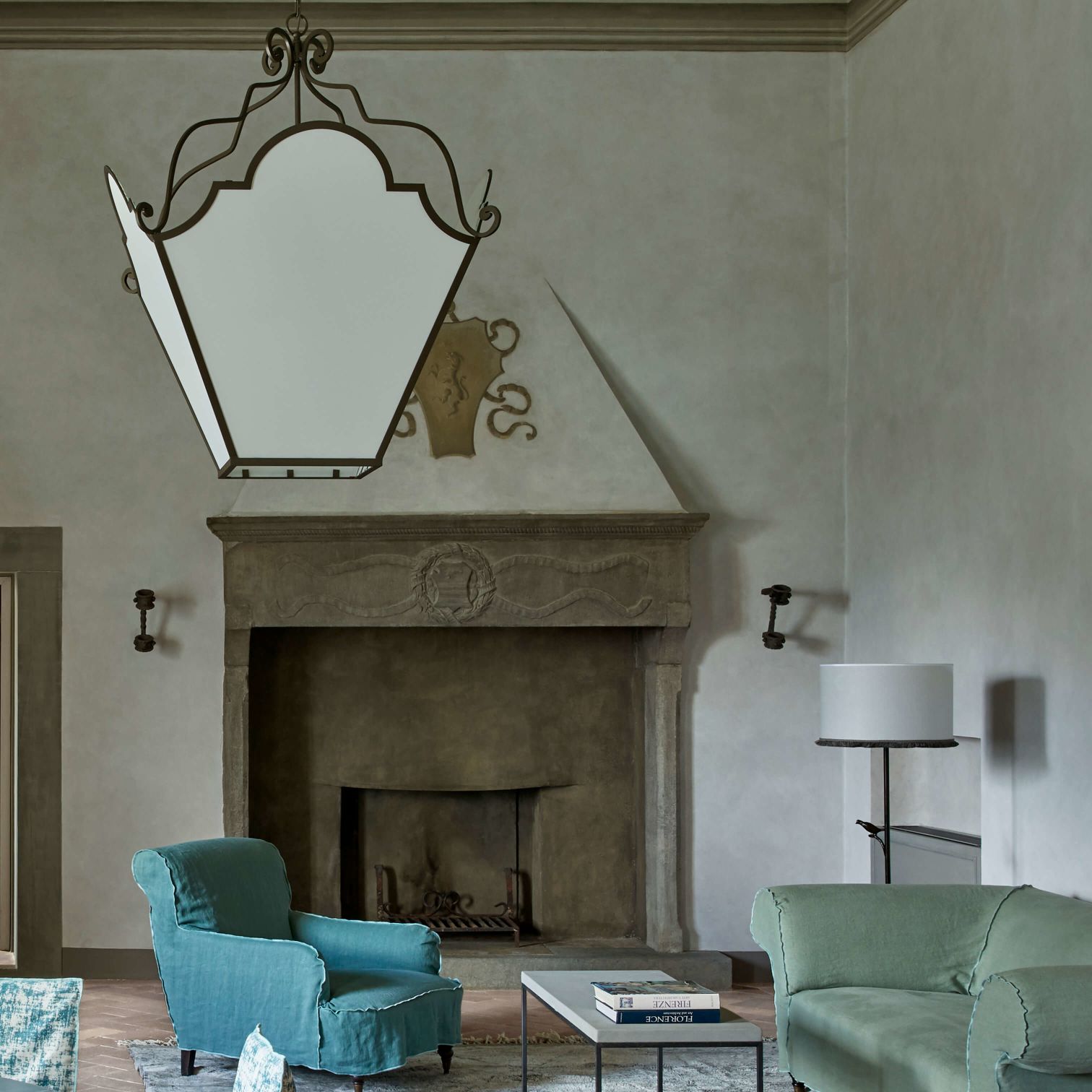
THE FAMILY COATS OF ARMS
On the first floor of the Castello, you’ll find a fine example of the Del Nero coat of arms — a rearing greyhound — set above the large stone fireplace.
You will also find a carefully restored fresco bearing the shield of the Torrigiani family, the Tuscan nobles who inherited the Castello by marriage in the early 19th century.
The Castello remained in the hands of the Torrigiani family until the early 2000s. Of particular note were the Marquis Carlo Torrigiani and his American-born wife, Marchesa Anna Torrigiani Fry, who embarked on extensive restorations of the Castello in the late 19th and early 20th centuries.
HISTORIC BOOK COLLECTION
Also found on the first floor is the Castello’s historic book collection. Catalogued and preserved in line with Belle Arti guidelines — designed to protect Italy’s rich material heritage on behalf of the nation — the collection boasts real treasures, including account books stretching back to the 1700s.

In keeping with a long Florentine tradition of fastidious accounting, these documents give a fascinating insight into the day to day running of the estate in times gone by.
The finest book in the collection is an enormous volume of exquisitely hand-painted maps depicting the estate’s holdings from the 1820s. Please speak to our dedicated concierge team if you would like to take a closer look.
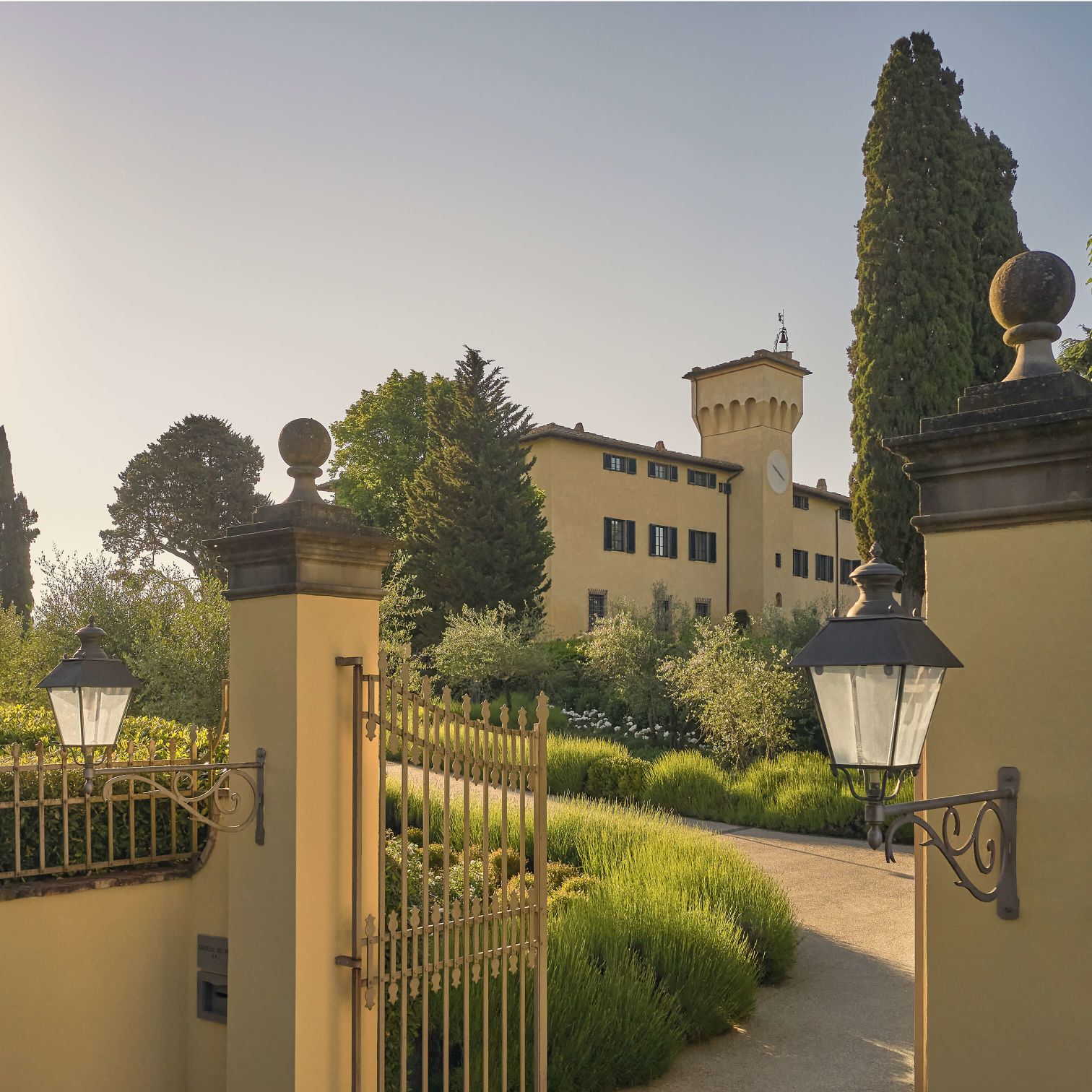
CLOCK TOWER
As you approach the main entrance to the Castello, you would have been unable to miss the clock tower dominating the front facade. Built in the late 1700s, historically it would have helped the estate’s many residents keep time as they tended to their fields, farms and vines.
Today, the clock-face is for display only, but if you’re willing to go exploring up to the second floor, the inner workings can still be glimpsed through a small window tucked beneath the exposed beams.
WINE CELLARS
For a taste of the Castello during the Del Nero days, descend the stairs beneath the reception hall to the cool of the historic wine cellars. They’re in fine working order — as you would expect, given the Castello’s location in one of the oldest wine-making regions in the world.
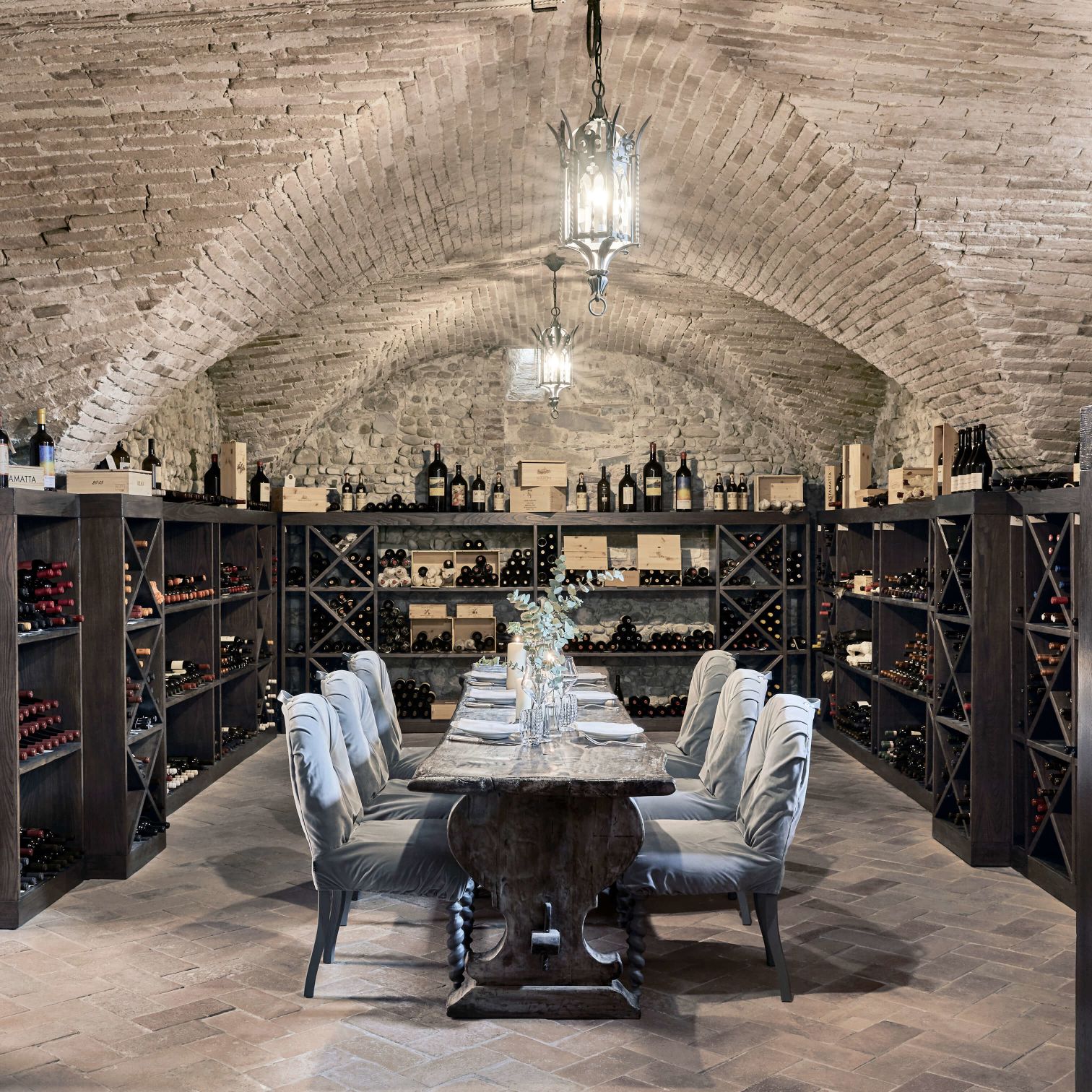
Once catering to the palettes of Florentine nobility, the cellars now store more than 800 wines for the enjoyment of our guests, all carefully selected by our master sommelier.
Either side of the well-trodden stone steps, you’ll see ramps that once used to haul great barrels in and out during the wine-making process.
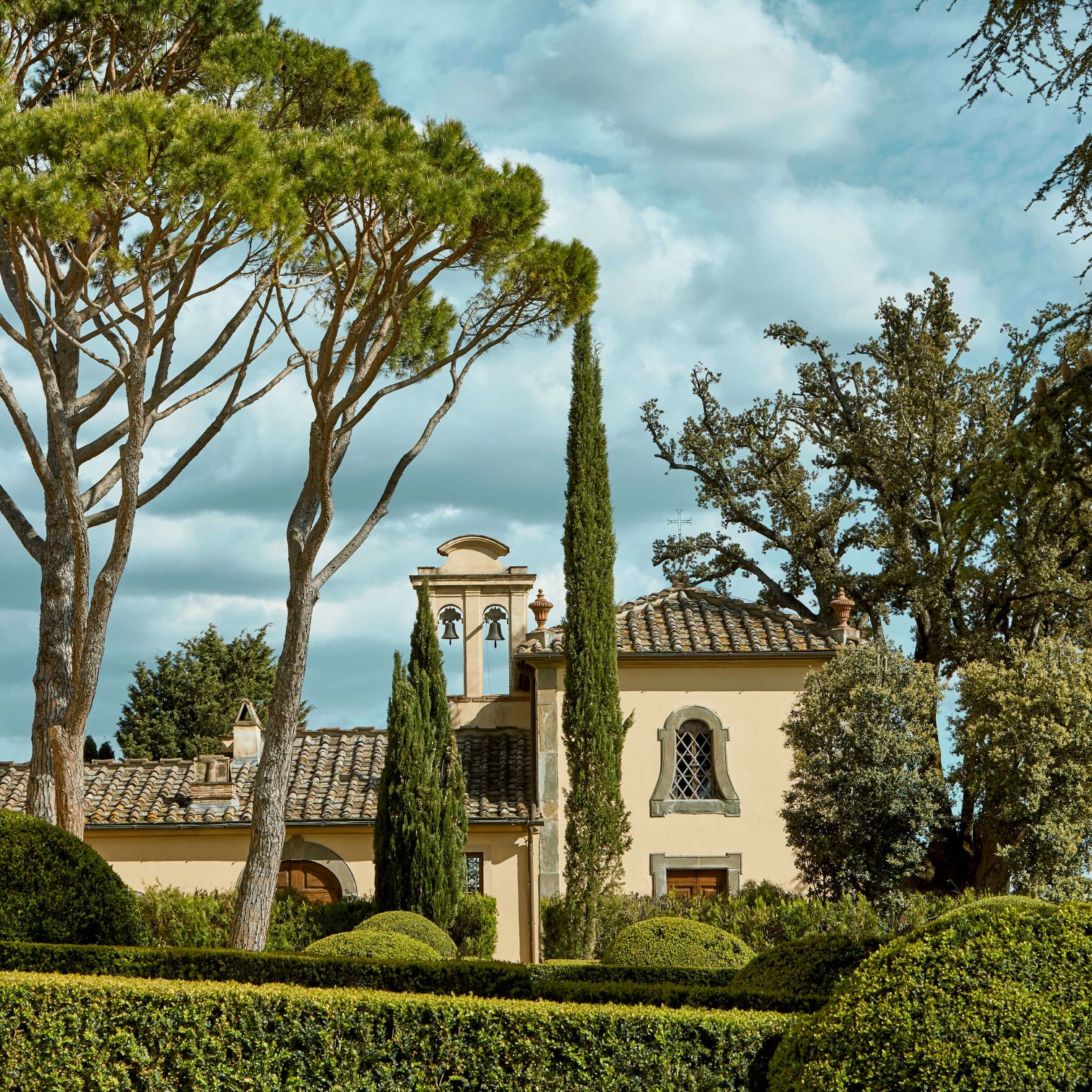
THE CHAPEL
To the right of the main entrance is the Castello’s private chapel, built in the late 18th century and dedicated to San Michele and San Filippo Neri. It now serves as an intimate venue for ceremonies of up to 30 guests.
Take a pew and discover the tale of American-born Marchesa Anna Torrigiani Fry, mentioned above, who was later buried here in the chapel.
A plaque to your left records her nursing services to wounded soldiers in WW1, during which she caught a disease that would lead to her premature death in 1917.
The Marchesa was posthumously awarded a medal for valour, and a plaque honouring other members of the wider estate family who sacrificed their lives can be found on your right.
LA PASSEGGIATA DELLA MARCHESA
Before you descend the steps to Pavilion, your eye will be drawn to two towering rows of cypress trees that flank a narrow pathway leading downwards. These trees were planted on Anna’s instruction, and the pathway is now called ‘The Marchesa’s Passage’. It was Anna’s favourite, as it would lead her to the calm and quiet of the ancient oak woods below. Why not follow in her footsteps, and see if you agree?
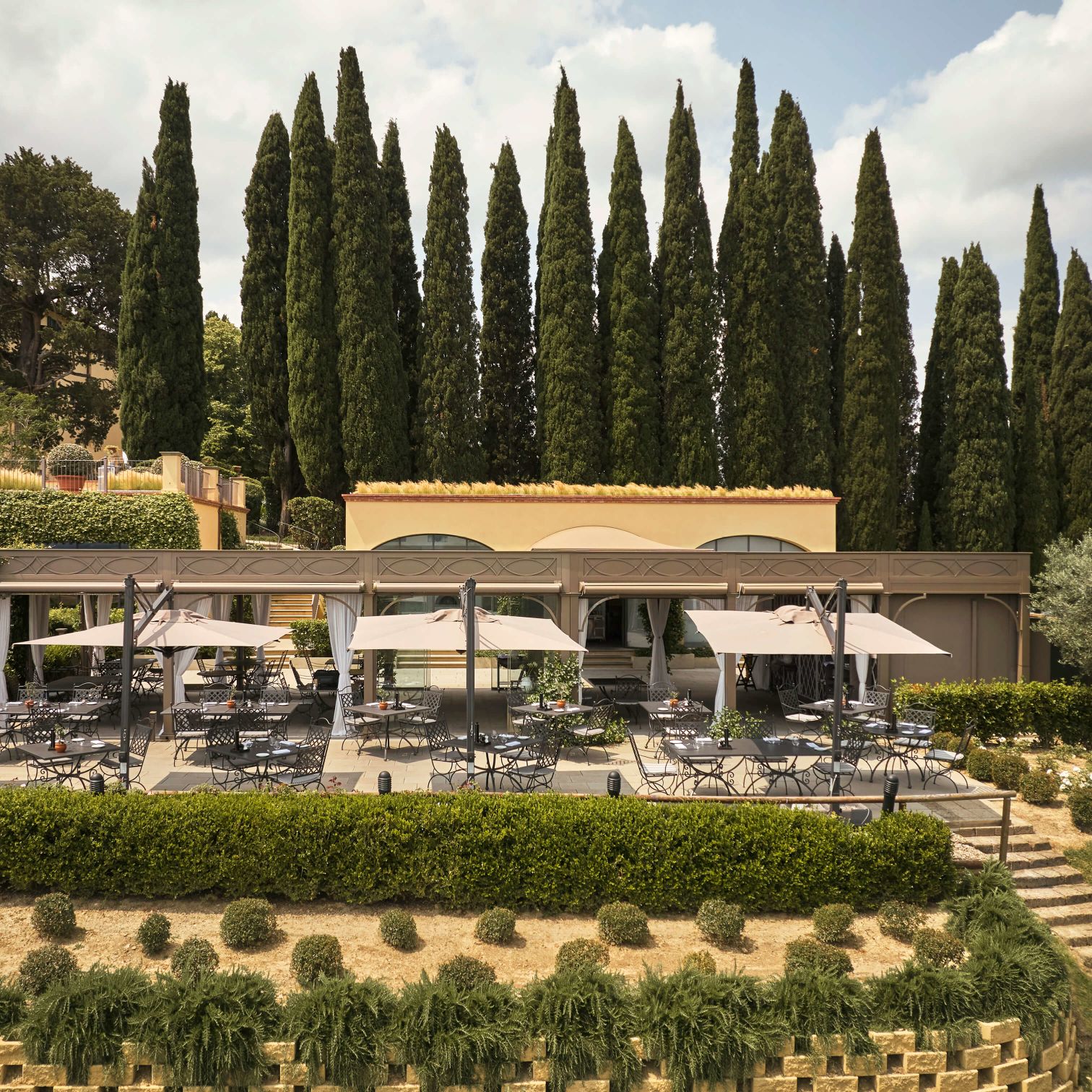
Walk in the footsteps of Italian nobility, and book your stay at COMO Castello Del Nero today.
